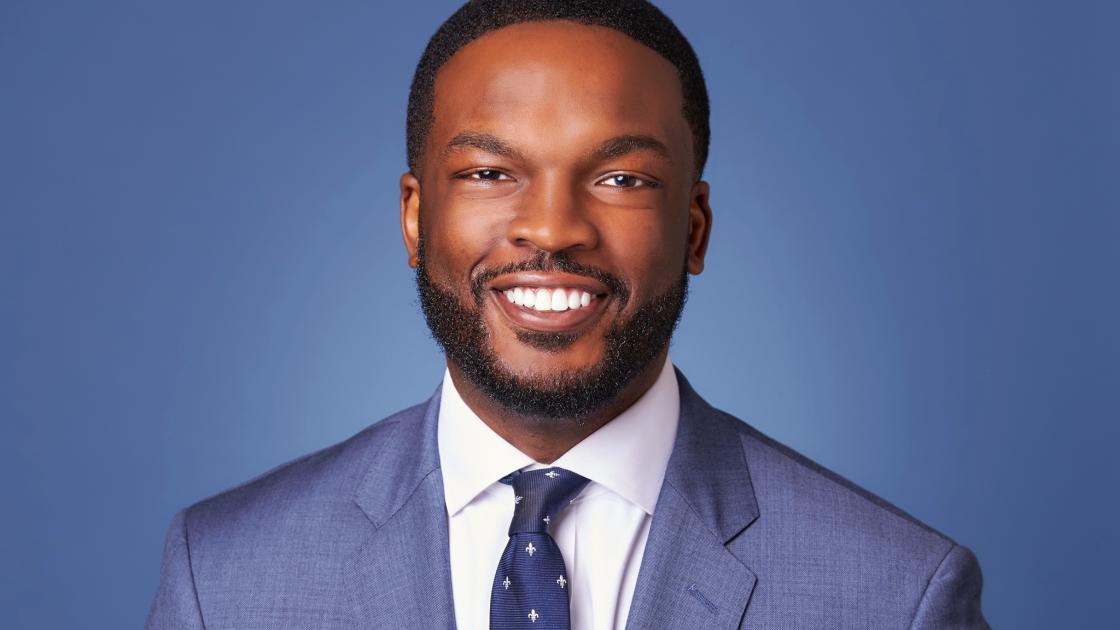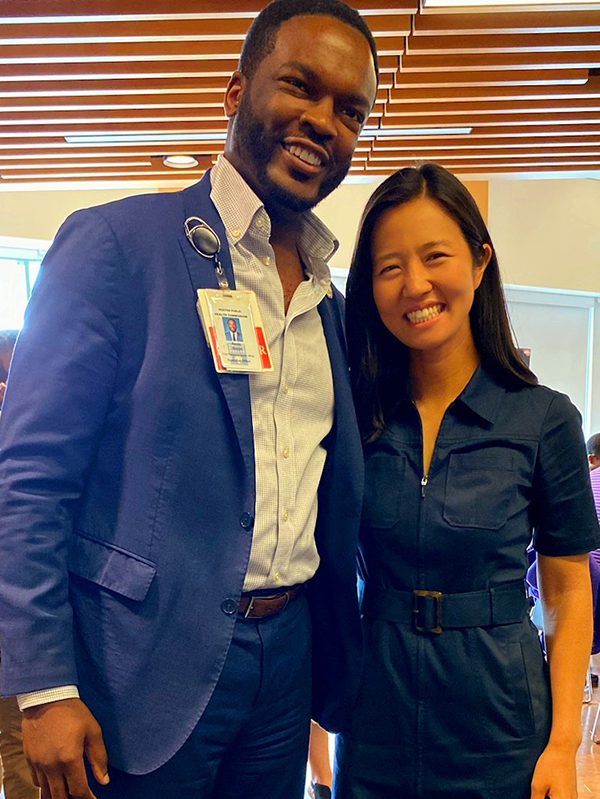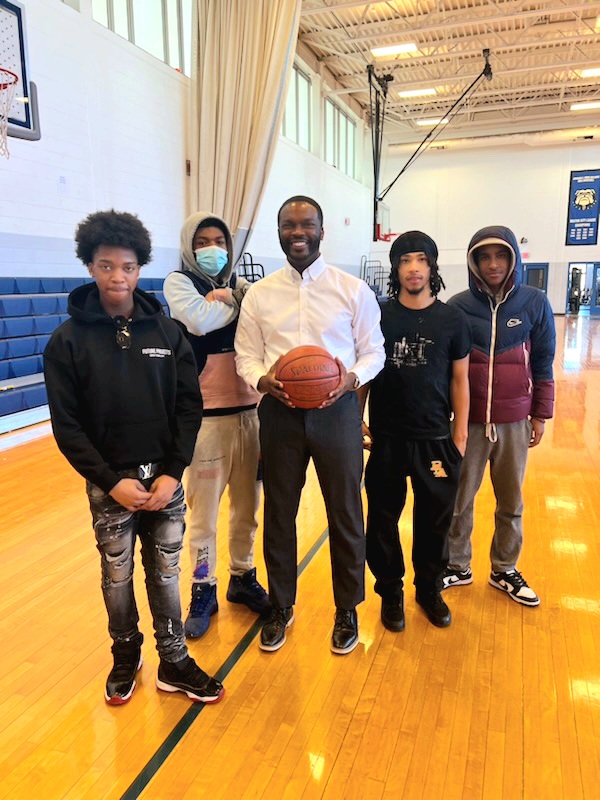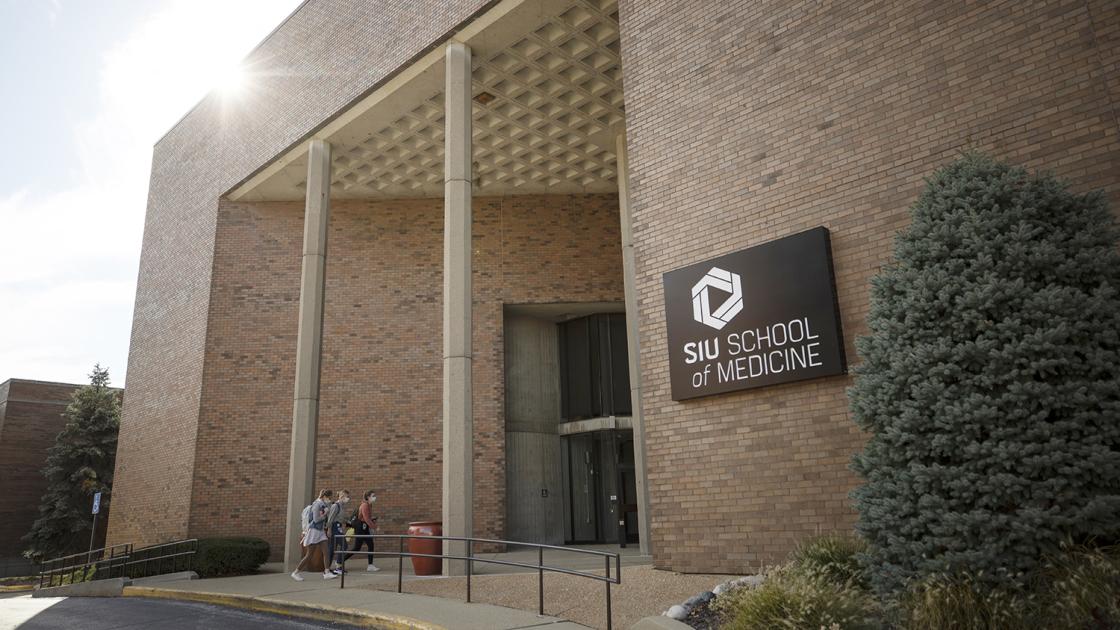
Simon leads efforts for better behavioral health in Boston
 SIU School of Medicine alumnus Kevin Simon, MD, (’15) was named Boston's first chief behavioral health officer in June 2022. Mayor Michelle Wu appointed Simon to the newly created post as part of the Boston Public Health Commission (BPHC; photo at right).
SIU School of Medicine alumnus Kevin Simon, MD, (’15) was named Boston's first chief behavioral health officer in June 2022. Mayor Michelle Wu appointed Simon to the newly created post as part of the Boston Public Health Commission (BPHC; photo at right).
He has been tasked with developing and implementing a comprehensive behavioral health agenda for the city of near 700,000. At the time of the appointment, Simon told Boston.com, “The status quo of youth mental health, the status quo of adult-elderly mental health — something has to be different. If I could be part of that change toward progress, I figured that this is the right opportunity and the right time.”
Simon prepared for this opportunity his entire professional life. He brings a combination of education and experience with an open mind and love of learning and collaboration.
Raised as the son of Haitian parents in Brooklyn, Simon is an assistant professor in psychiatry at Boston Children's Hospital, an instructor in psychiatry at Harvard Medical School, a former Commonwealth Fund Fellow in Health Policy at Harvard University, and the medical director of Wayside Youth & Family Support Network, a child welfare and community behavioral health agency.
Clinically, he works as a child, adolescent and adult psychiatrist and addiction medicine specialist through the Adolescent Substance Use & Addiction Program (ASAP) at Boston Children's Hospital.
It’s a substantial resumé. And all the more impressive, considering he earned his medical degree at SIU less than 10 years ago.
Reflecting, connecting
In March, Simon returned to the School of Medicine in Springfield to deliver the Theodore LeBlang Distinguished Lecture in Medical Humanities. The public health leader traced a through-line for his busy career back to his formative years in MEDPREP, the medical and dental preparatory program nestled on SIU’s Carbondale campus, as well as to his medical training in the Land of Lincoln. It set the young man on a course to become a physician, scientist, mental health policy expert and inspirational Ivy League instructor.
“Back in 2009, there were 20-something of us in MEDPREP, all from diverse backgrounds, but we had the same interests. It was just a fabulous place to be because it was probably the first place I’d been where every staff person, every teacher wanted us to be successful,” Simon said.
Veteran instructor Shirley McGlinn was Simon’s advisor, and he remembers Don Patton and director Harold Bardo were especially supportive. “They’d say, ‘You're going to make this work. We’re going to help you make it work!’”
After the MEDPREP program, an automatic admission to SIU’s medical school sounded ideal to Simon. Problem-based learning (PBL) and the small class size fostered the same close-knit relationships that he had experienced in Carbondale. 
He also found valuable mentors at the institution. During a third-year rotation, Dr. Jeff Bennett encouraged Simon’s dual interests in research and psychiatry, encouraging him to look into a National Institutes of Health (NIH) research program. Simon applied and was awarded a scholarship that led to a year of pediatric psychiatric research training at the University of Pittsburgh. Though it extended his matriculation, Simon viewed it as a growth opportunity.
It was a pattern that would repeat throughout the next decade: Simon would pursue a passion, further his education and find some mentors. His psychiatric residency at Morehouse School of Medicine in Atlanta coincided with the school’s expansion into mental health equity for the historically marginalized with the establishment of the Kennedy-Satcher Center for Mental Health Equity, and while there, he contributed to manuscripts highlighting psychiatric care best practices.
Next came a move to Boston, with overlapping fellowships in pediatric psychiatry and addiction medicine at Boston Children’s Hospital. He established a clinical practice, saw young patients and started a family with his wife, Dr. Brittne Halford. He also expanded his research portfolio with a career-development “K” award from the NIH.
Policies to make impact
Dr. Simon became increasingly aware that while he could assist individuals and families through therapy and research inquiries, the actual provision of health care was highly dependent on external environments. “I started thinking upstream,” he said. The intersection of his social science interests led to yet another fellowship, in minority health policy.
Simon said his early medical school training prepared him for the tensions inherent in the space where policy meets practice, in discussions that can affect entire populations.
“The problem-based learning at SIU dovetails perfectly when a potentially difficult policy matter comes up. Here [in Boston], I'm also clinical, so I get to help problem-solve at a system level.”
During his March lecture in Springfield, Simon expressed his enthusiasm for another trait honed at SIU: lifelong learning.
“You have to be in a learning space, in a learning frame of mind to always ask a question,” he said. “A lot of times people might look to you for an answer. This is where psychiatry comes into play: Can you ask the right question to help the person think about something differently?”
The collaborative process emboldens the patient, according to Simon. “The difference is me telling you what to do versus me helping you get to that spot for yourself. In psychiatry, we recognize that improvement can happen, but it happens on the person’s timeline, not on ours.”
Simon believes timing is critical for mental health care to have a maximum impact. Most psychiatric and mental conditions begin in adolescence. Still, because of the dearth of providers, “a majority of patients end up having a delay of a decade or more before being able to see somebody and have access to treatment,” he said.
As in Illinois, Massachusetts has problems rooted in systems and staffing levels. At Boston Children’s Hospital where Simon works, young patients wait an average of 18 months to receive a neuropsychological evaluation.  His behavioral health office is initially focusing on strategies to support this vulnerable population. Programs will be anchored in the Boston Public Schools, which serves 50,000 students.
His behavioral health office is initially focusing on strategies to support this vulnerable population. Programs will be anchored in the Boston Public Schools, which serves 50,000 students.
“You have to keep the patient at the forefront. The schools are where the youth are, so we are going to staff them and see that they are equipped with activities and programs for their needs,” Simon said.
Announced in March 2024, the investment from Boston’s municipal government is substantial. Officials plan to spend $21 million over the next five years to increase mental health support in city schools and train more behavioral health clinicians. The initiative will be funded through federal grants, mostly from the pandemic aid in the American Rescue Plan Act, or ARPA.
Simon emphasized the critical importance of addressing the recent decline in youth mental health, understanding that any measure of improvement in mental health will inherently be longitudinal, unfolding over several years. Amidst this landscape, his team has achieved a significant milestone by publishing the inaugural Health of Boston - Mental Health report. This publication underscores their immediate objective to channel resources effectively towards initiatives and individuals poised to support the most at-risk populations. It employs an evidence-based safety blanket approach—a nod to the limitations of safety nets due to their inherent gaps.
Looking forward, Simon and his team are committed to launching programs aimed at enhancing awareness and expanding diversity within the workforce, furthering their commitment to a comprehensive and inclusive mental health strategy.
“It’s all about building our capacity, coordinating and communicating with our partners and the kids, and getting the work done,” he said.
As a Black physician and community health care leader, Simon also sees another positive facet to the job: He can be a role model. “I will talk to anyone in any department to help better coordinate services for citizens of Boston. The fact that I look like I do, I’m showing up and bringing their voice to the table. It’s another small metric in behavioral health improvement.”



